
9 minute read
ACROSS THE AISLE
Some Lawmakers Search for COMMON GROUND
by Jennifer Ginn
It can sometimes be hard to find common ground in the heat of a legislative session. Finding common ground with someone from another political party often can be even more elusive. But some legislators have found a way to work across the aisle.
Working on Prison Reform in Texas
When Texas Rep. Jerry Madden, a Republican, was appointed chair of the Corrections Committee in 2005, the speaker of the house gave him one instruction: “The speaker told me my chore was not to build new prisons, because they cost too much,” Madden said.
Madden didn’t have experience in criminal justice, so he started asking around about who he should talk to. Everyone told him Sen. John Whitmire, a Democrat and chair of the Senate Criminal Justice Committee since 1993, was the expert.
“I wandered across the hall one day and I sat there for probably about two hours,” Madden said. “We just hit it off perfectly. (It was) ‘OK, I agree with most of what you’re saying’ and he agreed with most of what I was saying.”
The pair immediately became partners, Whitmire said.
“When we’d call in an agency or a department head, we’d be together and impress on them to do a better job,” Whitmire said. “He and I just started singing out of the same hymnbook. We weren’t singing the same song, but we had the same hymnbook.”
Their partnership has done a lot for criminal justice in the Lone Star State. Instead of building three new prisons at a total cost of $500 million, they convinced the legislature and the governor to spend less than half that amount to create 6,000 new treatment beds. The state also modified its parole system and invested in diversionary programs.
So instead of having an anticipated almost 18,000 new prisoners, policymakers actually shut down a prison last September.
“Right now, our criminal justice system (is) one of the largest in the country … and we get pretty darn good reviews for not only being tough, but being smart,” Whitmire said.
“I don’t think it matters which side you’re on when the net effect is, it’s working,” Madden said.

PRISON REFORM
AUSTIN, TEXAS—Democrat Sen. John Whitmire, left, and Republican Rep. Jerry Madden have worked together on Texas prison reform. © AP Photo/Harry Cabluck
CO-SPEAKERS SALEM, ORE.—Democrat Rep. Arnie Roblan, a 2009 Toll Fellow, left, and Republican Rep. Bruce Hanna have served as co-speakers of the Oregon House of Representa tives the past two years due to a 30-30 party split in membership. © AP Photo/Don Ryan
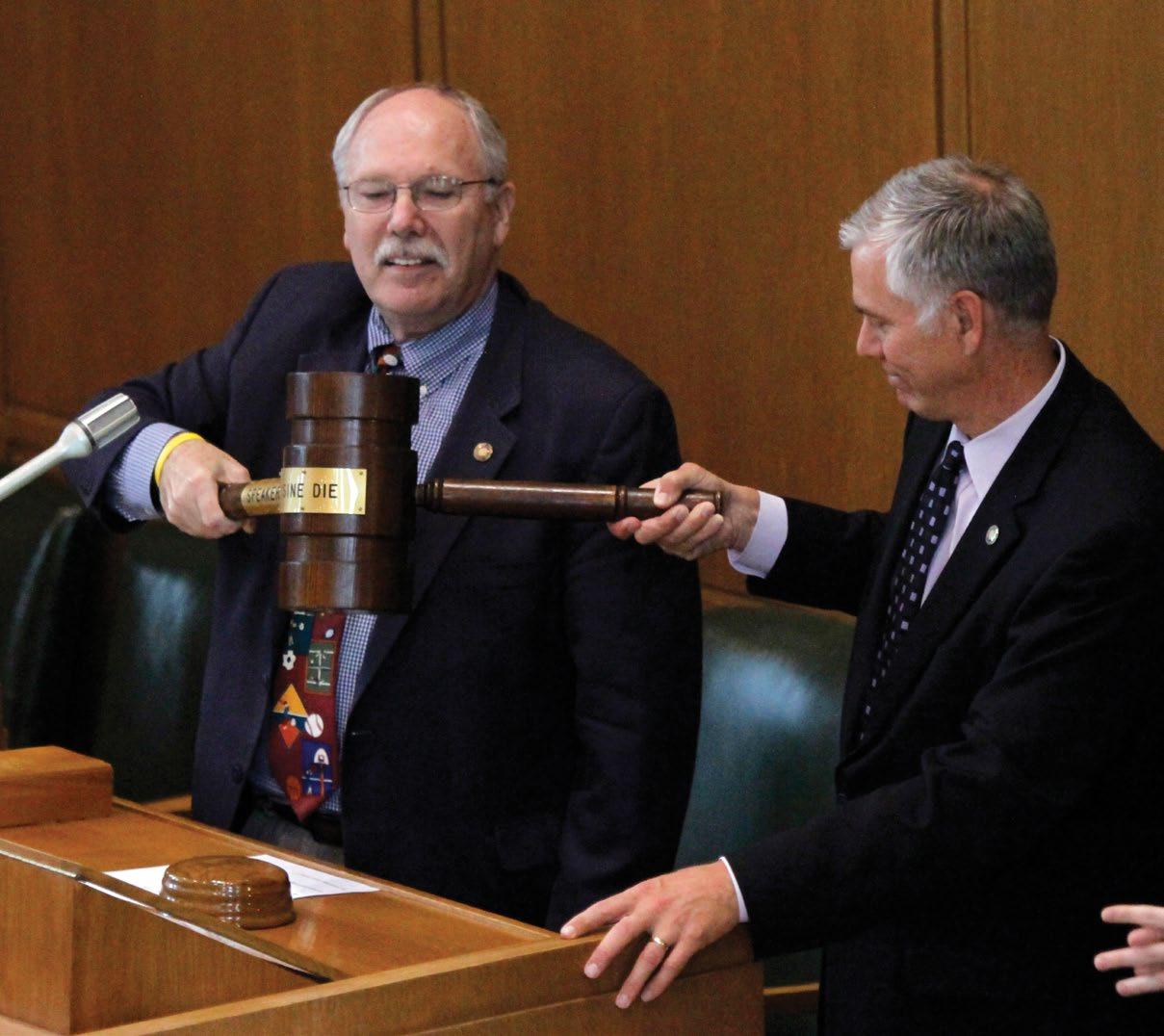
Election Forced Close Work
California Sen. Sam Blakeslee, a Republican, has a history of working across the aisle in the legislature. He has had more Democrats than Republicans co-author his legislation and has even worked with Democratic U.S. Sen. Barbara Boxer to testify before Congress about the need for more intense seismic studies around nuclear power plants.
A geophysicist by training, Blakeslee came to the legislature in 2004 with a different view of politics.
“For me, the goal has always been to cross those party lines to produce a desired outcome, not simply to make statements,” Blakeslee said. “I think the goal is to create a block of like-minded people on particular issues as they arise and forge a compromise on those issues.”
It hasn’t always been easy. Blakeslee said he was one of the first people in California to refuse to sign Grover Norquist’s Taxpayer Protection Pledge to oppose all tax increases.
“The Republican leader in the Senate made certain representations that they might stop walking precincts for me,” he said, “I could lose my race if I didn’t sign it. I don’t want to say it (working across party lines) was frictionfree. Having said that, I did win my race without signing it.”
Blakeslee will be leaving the legislature in December, having decided not to run for re-election. His bipartisan work will continue, however, with his founding of the California Reform Institute, a think tank designed to create politically viable, bipartisan solutions to problems facing California.
Blakeslee said compromise and bipartisan legislation is possible, but policymakers will need to be ready to face the possible consequences.
“There’s no doubt taking these (bipartisan) steps will require moving out of one’s comfort zone,” he said. “To believe it will be pain free to drive big reforms down the middle is a fiction. It will be challenging. … It will be difficult, it will be risky, it will produce pain, but it is essential.” The 2010 election led to an even 30-30 split in the Oregon House of Representatives.
The House has operated with two co-speakers—Republican Rep. Bruce Hanna and Democrat Rep. Arnie Roblan. Every committee in the House also has co-chairs.
Although setting up the power-sharing agreement was heated at times, Roblan said it worked out well for the legislature and the state.
“I think for the most part, when you really get down to having those (tough) conversations with people, both sides want the same thing,” Roblan said. “How you go about getting there is sometimes very different.”
Hanna and Roblan said they continually stressed the importance of being polite and professional.
“We said that over and over again,” Hanna said. “We’re not going to agree on all things from a philosophical standpoint, but using these two markers, put yourself in a room and say, ‘Let’s not leave until we can get some incremental movement in a positive direction that your constituency can look at and cheer without calling each other bad names.’”
Hanna and Roblan said it took time for them to develop a mutual trust. Both said they believe this experience has changed the way they, and other legislators, do their jobs.
“They’ve seen what it takes to work together and for the rest of their career, they’ll be better legislators, as we will in leadership,” Hanna said.
“I also hope whoever gets in the majority … learns from this,” Roblan said. “How you treat people is as important as what the outcomes are. If people feel they have a voice, they’re more involved in getting into the solution-making process. … What we
Bipartisanship Can Have Consequences
showed people is when there is a will, you can do it.”

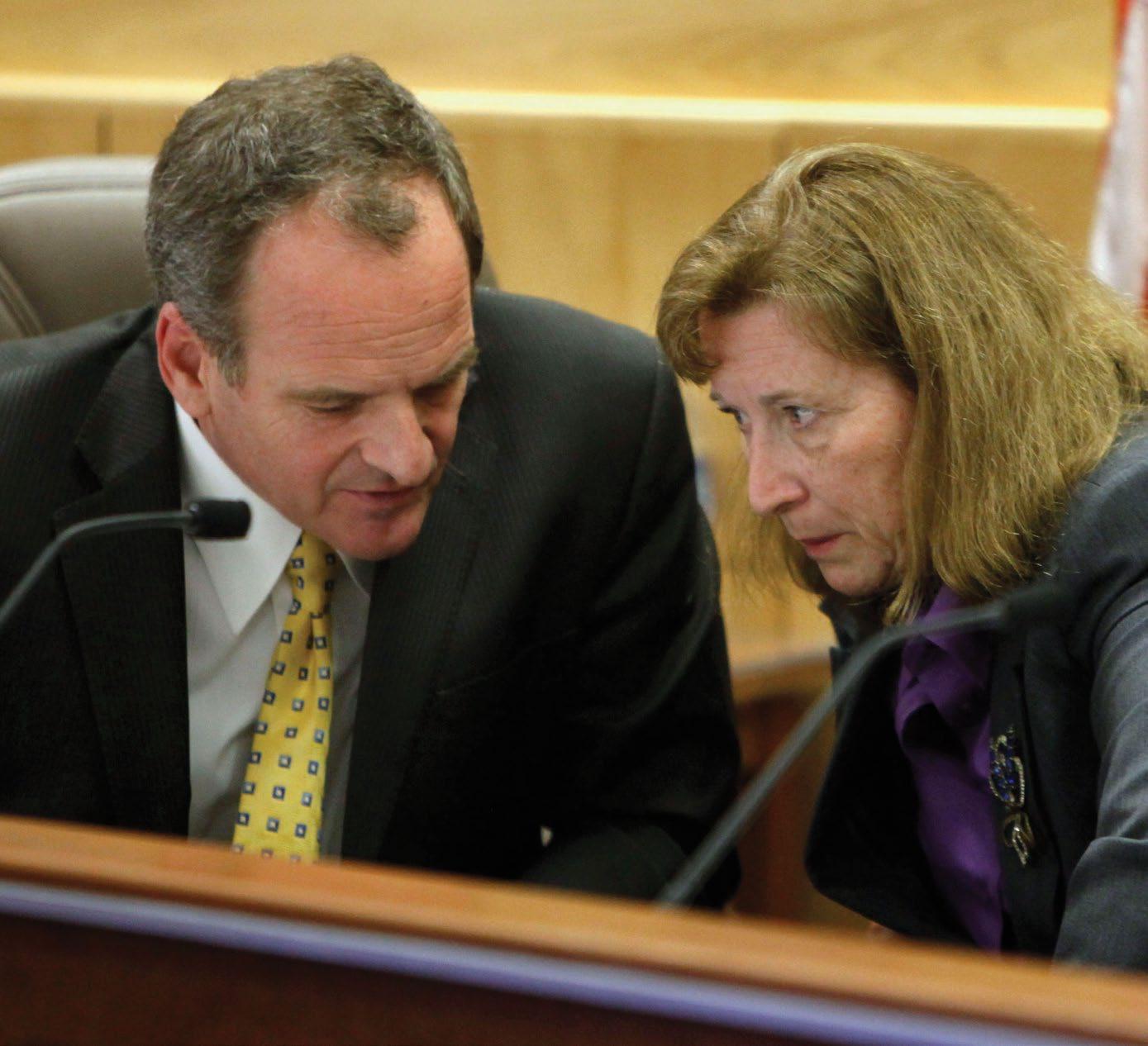
ACROSS THE AISLE
SACRAMENTO, CALIF.—State Sen. Sam Blakeslee, a Republican, has had more Democratic than Republican co-sponsors on legislation during his time in the state senate. Here, he confers with Democrat Ellen Corbett at the Capitol. © AP Photo/Rich Pedroncelli
Straight
HOW HAS THE TONE AND TENOR OF THE LEGISLATURE CHANGED AND HOW HAS THAT AFFECTED THE LEGISLATIVE PROCESS?
RANDY MCNALLY
Senator, Tennessee Chair of the Senate Finance, Ways and Means Committee Chair of the Joint Council on Pensions and Insurance Committee
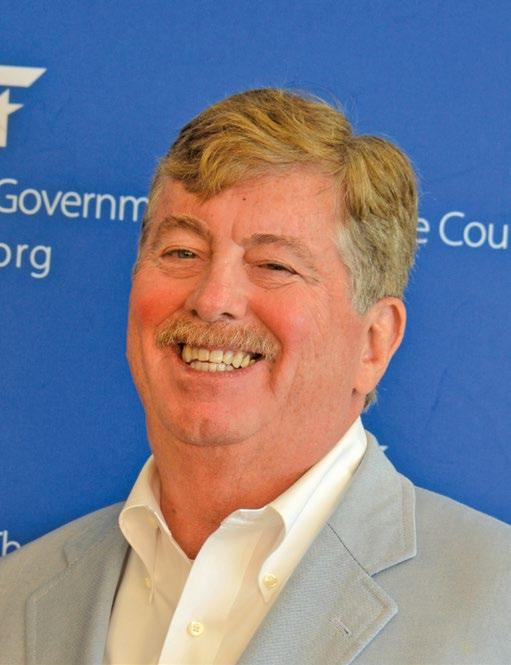
PHILOSOPHIES NOT THAT DIFFERENT “Up until the ‘90s, the legislature was dominated by mostly conservative Democrats. Then first the Senate switched and then the House and finally the governor … switched. It has changed somewhat in philosophy. … The legislature’s much more focused on jobs, full employment, a probusiness attitude than it has been in years past. … I think the transition was gradual and it’s been fairly smooth. The philosophical differences were not that great between a conservative Democrat and the new Republican majority than we’ve had in the past.”
MARY LIZ HOLBERG
Representative, Minnesota Speaker pro tempore Chair of the Ways and Means Committee

COMPROMISE EASIER IN GOOD TIMES “I think in large part, the tone and tenor has changed given the economic conditions. I’ve been in state legislative service for 14 years and prior to that, 10 years at the local level. I think when times are good, it’s easier to compromise because there are many more options on the table. … Unlike past times when there were ebbs and flows in the economy and you could see a path out, this particular recession and not seeing a recovery moving and the growing demand on public services, I think makes it really hard to find compromises that satisfy both sides of the equation.”
TERRY ENGLAND
Representative, Georgia 2011 Toll Fellow Chair of the House Appropriations Committee
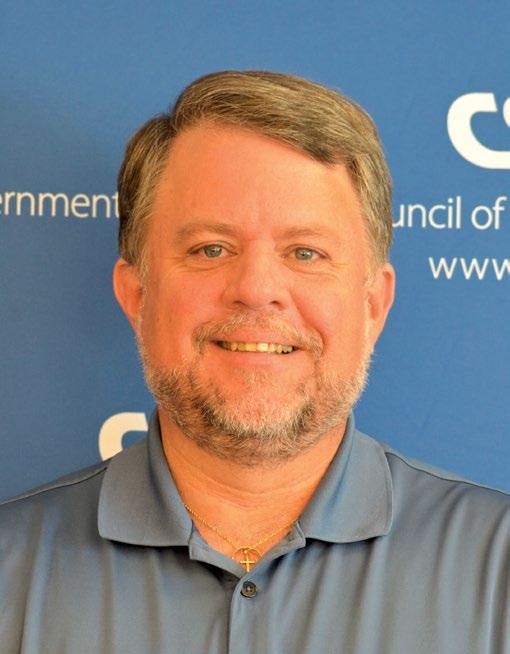
SOCIAL MEDIA ADDS TO STRESS
“With all of the emerging technologies—with Facebook, with all of the blogs that are out there—a lot of things are more public or more transparent now than they had been. That at times causes some of the relationships in the chambers to be a little more stressful. You know, somebody says something you normally wouldn’t have heard 10 years ago and it gets back to you. It becomes one of those things, ‘Well, I heard you said this about me’ or ‘I said this about you.’ So that has added a little twist, a little tweak I don’t think a lot of folks realize.”
RICHARD DEVLIN
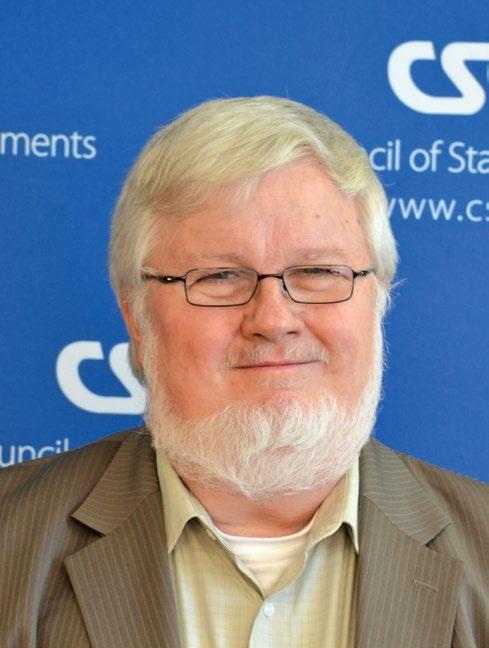
Senator, Oregon 2010 Toll Fellow Co-chair of the Legislative Audits, Information Management and Technology Committee Co-chair of the Ways and Means Committee
COOPERATION NORMAL
“As a long-time member of the legislature, now in the Senate, I will tell you that it has never been particularly partisan. … We’re kind of a unique body. Our House has 30 Democrats and 30 Republicans. Our Senate has 16 Democrats and 14 Republicans. … We have had to cooperate to get the people’s business done and I think most people think that we’ve done a pretty good job, particularly given the kind of fiscal issues the state is facing.
I think to some degree it’s (the cooperation) normal. I think to some degree, it’s enhanced because we are so close.”
MIKE BRUBAKER
Senator, Pennsylvania 2012 Toll Fellow Chair of the Finance Committee

IT’S WHAT YOU MAKE IT “The tone and tenor of the legislative process is, I believe, essentially what you make it. There are individuals who really thrive at increasing the temperature of the conversation. Then there are those people who have a skill at kind of cooling the temperature down a bit and being more rational and thought-provoking. … Generally there are both personalities in any general assembly. … Sometimes when you raise the temperature of a conversation, you leave healthy debate and get into yelling and screaming and arguing. That’s obviously not productive.”












